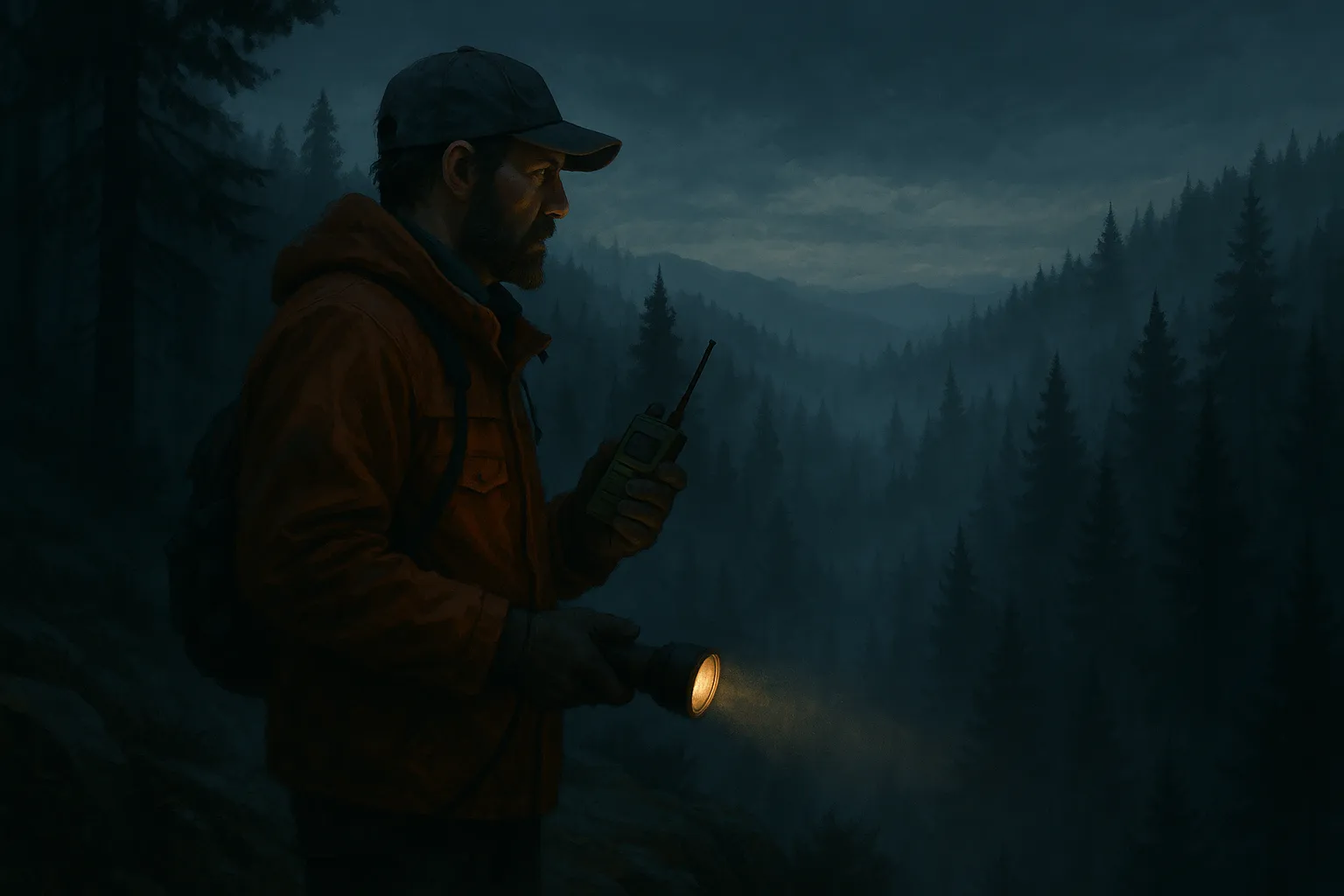It starts out calm. You’re Henry, stationed in the vast Wyoming wilderness, watching for smoke and chatting through a radio with a woman named Delilah. Seems pretty chill, right? But somewhere around the halfway mark, Firewatch begins to mess with your head. You’re not just exploring the Shoshone National Forest anymore — you’re second-guessing every footstep, every crackle in your headset, every shadow beyond the trees.
You may have gone in expecting a story-rich walking sim. What you get is something closer to a slow-burning psychological thriller. And here’s the twist: Firewatch isn’t a horror game — but it plays with fear in ways that are far too deliberate to ignore.
Let’s break down how Campo Santo subtly borrowed from the survival horror playbook to make you feel deeply, deliciously uncomfortable.
The Illusion of Control: Narrative Tricks That Trap You
At its core, horror thrives on taking power away from the player. And Firewatch does this brilliantly, not with monsters or jump scares, but through story structure.
From the opening minutes, you’re offered choices about Henry’s life — dialogue options, relationship details, memories. It feels like you’re shaping your journey. But no matter what you choose, the outcome doesn’t budge. Julia, Henry’s wife, will always be diagnosed with early-onset dementia. That heartbreak is fixed. Your backstory is scripted.
As you move through the game, this illusion of agency deepens. You can investigate every side plot, answer every radio call, complete every objective — but the “Big Fire” will always rage. It will always consume the forest you’ve grown to know. Delilah will always choose not to meet you in person. You can’t change the ending. You’re not in control.
This sense of narrative inevitability — the creeping feeling that your choices might not matter — is pure horror DNA. It’s a callback to the kind of dread we usually associate with games like Silent Hill or SOMA, where the worst thing you can do is nothing at all… and still fail.
Limited Resources, Unlimited Anxiety
Survival horror games are known for resource scarcity — just enough bullets to survive, never enough to feel safe. Firewatch doesn’t hand you a pistol or a medkit. Instead, it gives you a camera.
That’s right. Your only “equipment” is a film camera with a limited number of shots. But the game doesn’t tell you what to photograph or why it matters. Do you save film for suspicious footprints? For the sunset? For potential evidence of a stalking threat? You’re left guessing, and that’s the point.
Then there’s the rope. Early on, you find a single length that only lets you descend one slope. Want to climb down somewhere else? You’ll have to wait. It’s a subtle way of gating progress — and reminding you that even basic movement isn’t entirely up to you.
Oh, and there’s the flashlight. Genre veterans will spot this red flag a mile away. Flashlights in games like Doom 3 come with trade-offs — see the enemy or defend yourself, but not both. In Firewatch, the flashlight just lets you see. You have no weapon. Even when you do get an axe, it’s a scripted tool, not a defensive item. You can’t swing it freely. You can’t fend off shadows. You’re vulnerable by design.
It’s all part of a clever misdirection — giving you tools that feel familiar in horror contexts, but without the power usually attached to them.
Cutscenes That Hijack Time and Space
Remember those moments in horror games where you lose control — cutscenes roll, doors slam shut, and suddenly you’re somewhere else? Firewatch leans on this mechanic, too, but in a deceptively subtle way.
Time in the game isn’t linear. You don’t experience every day. The game skips weeks without warning. You’ll be hiking one moment, then snap — it’s a new day. You’re in a different location. No transition, no explanation.
Sometimes you wake up in your tower. Other times, you’re already deep in the forest, disoriented. You didn’t walk there. You didn’t choose this moment. The game chose it for you.
It’s deeply unsettling — not because anything horrific has happened, but because you’ve lost the most basic power a player usually has: the power to know where they are and why.
And that, again, is textbook horror — disconnecting you from the timeline, from your surroundings, from your own sense of continuity. Firewatch doesn’t scare you with monsters. It scares you with absence — of logic, of progression, of control.
Shadowy Figures and Surveillance Camps: Paranoia, Not Panic
There’s a moment in Firewatch when you stumble upon what looks like a hidden surveillance setup. Wires, notes, recordings. Someone’s watching you. The question is: who?
This is where the psychological tension peaks. You’re not fighting for your life, but you are questioning your sanity. Henry is just as confused as you are. Delilah seems to know more than she’s letting on. The forest, once tranquil, now hides secrets.
You start to ask: is this a thriller? A conspiracy story? Are we in Lost territory? Or is it still just a game about fire prevention?
That sense of never being quite sure — of wondering whether there’s more beneath the surface — is another trick borrowed from horror storytelling. It’s suggested dread. You’re scared not of what’s happening, but of what might.
Genre-Bending, Not Genre-Breaking
By the end, the tension dissipates. There’s no real monster. No dramatic twist. The explanation for the stalking and surveillance is grounded, sad, and strangely mundane. You’re not in Resident Evil. You’re back in the real world.
And yet, the unease lingers. Because Firewatch didn’t need ghosts or gore to crawl under your skin — it just needed to make you feel powerless. That’s the essence of horror. Not blood, not jump scares, but loss of control.
Game scholar Ewan Kirkland once said that “the ultimate horror of survival horror is the suggestion that, despite our strongest feelings to the contrary, we are not the master of our own fate.” Firewatch, quietly and without fanfare, proves that point. It doesn’t need to be horror. It just needs to feel like it could be.

